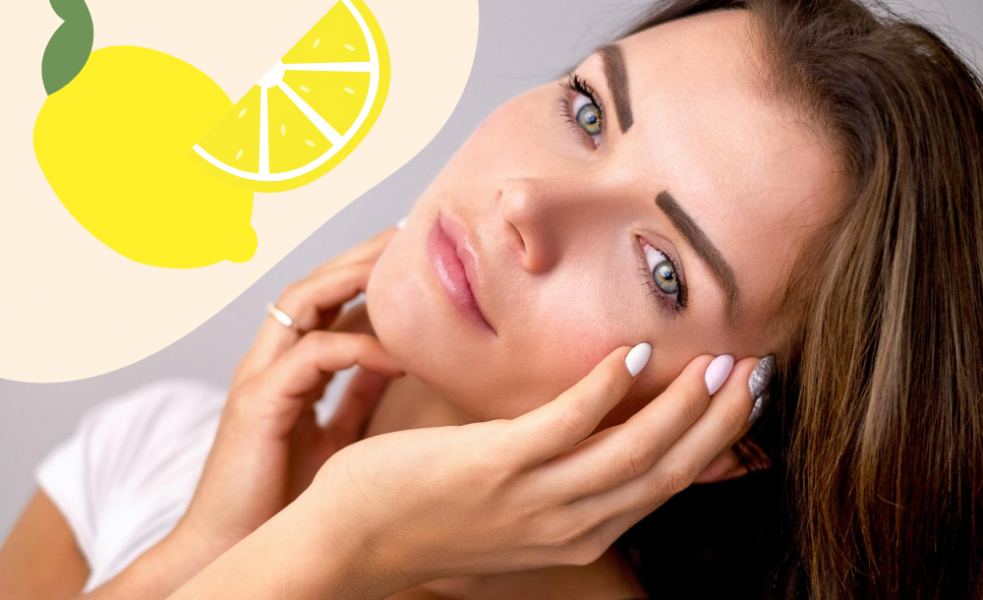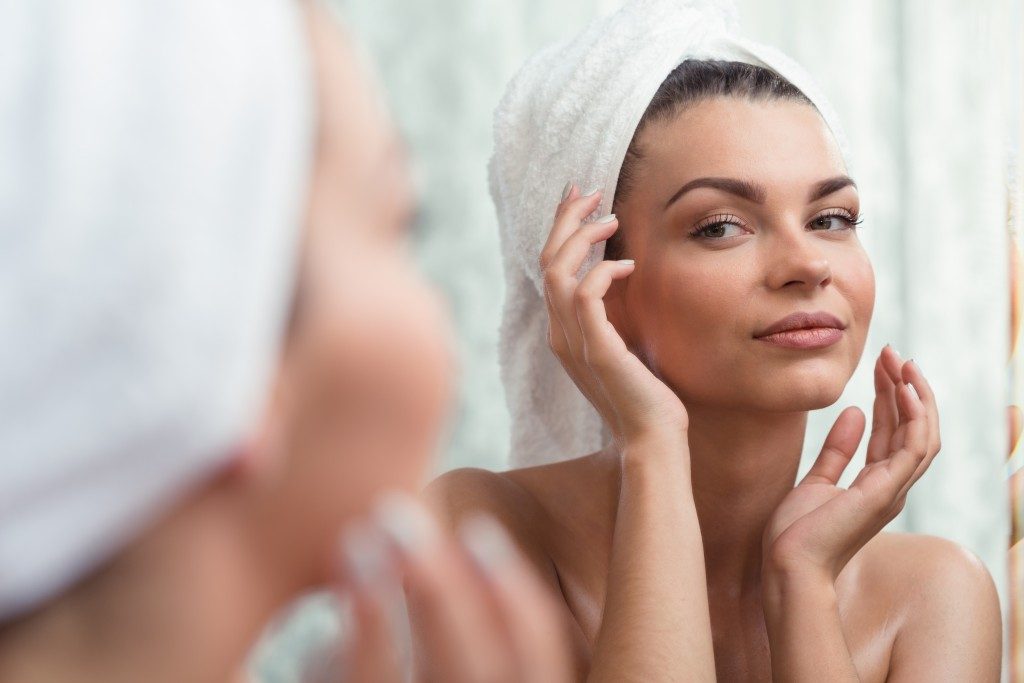In the last few years, lemon water was touted as a cure-all for many physical conditions and diseases.
For instance, it hydrates you, which can help treat bad breath and headaches. It’s a good source of vitamin C, which can save you from the common cold. It has antioxidants that can protect you from free radicals while reducing the chance of obesity. It can even help with your digestion and prevent kidney stones.
All these health benefits may convince you to switch from peach water to a fresh glass of lemon water. But did you know that lemon juice can also help you in terms of looking your best? Here’s why lemon juice should be a new natural ingredient in your beauty regimen.
Keep Your Skin Moist and Elastic

Your skin covers most of your body, so if it doesn’t look its best, then you’re not looking your best. Your skin is prone to drying when you’re not drinking enough water and exposed to factors that can dry your skin (e.g. dry air and cold temperatures). As a result, your scalp and skin may start to flake (which can cause itching and dandruff), your skin can look dull and have an uneven tone, and your wrinkles and fine lines may be more noticeable.
One way to tell if your skin is dehydrated is to do an elasticity test. Lightly pinch a portion of the skin around your cheek area. If it doesn’t bounce back immediately and you see some wrinkling, it’s a sign that your skin is dehydrated.
The common solution to this is drinking water, but a study in 2016 found that drinking water infused with lemon juice can make your skin quality much more hydrated and prevent the development of wrinkles.
It may have to do with the fact that lemons are rich in vitamin C, which is a natural antioxidant. Vitamin C help in producing collagen to repair damaged skin and reduce wrinkles. As a natural antioxidant, vitamin C can protect your skin from free radicals, especially when you’re constantly exposed to the sun’s UV rays. Free radicals can make your skin age prematurely, making you look much older than you really are.
Take note, however, that if you’re planning to consume more lemon juice, it’s unwise to drink lemon juice pure. On its own, lemon juice is extremely acidic and can have a negative effect on your teeth and digestive system. Instead, mix it with water to neutralize the acid. This is why people choose to drink lemon-infused water.
How to Make Lemon Water
Making lemon water is very easy; you only need lemon and hot or cold water. It’s similar to making any type of infused water.
Make sure you have fresh lemon fruits (ideally organic lemons) rather than lemon concentrates as the latter may be full of added sugars and preservatives that cancel out the health benefits of lemon juice.
To make a single serving of cold lemon water, pour 8 ounces water into a glass. Cut one lemon in half; set the other half aside. Remove the seeds and cut the lemon half into smaller pieces to extract as much juice as possible. Squeeze the lemon slices into the water and mix. Use a strainer if you don’t want the pulp to get in.
Do the same process to make hot lemon water, except using a mug this time. Wait for your lemon water to cool to your desired temperature.
If you want to make a pitcher of lemon water, take a regular-sized pitcher and fill it with water. Rinse one lemon, cut it into small pieces, and remove the seeds. Drop the slices into the pitcher (no need to squeeze out the juice) and put your pitcher in the fridge. Ideally, you should let it infuse overnight to get the most out of your lemons.
Treat Acne Breakouts (and Prevent Them)
Acne can have many root causes, and lemon juice can help treat some of them. The most common cause of acne is clogged pores. Your hair follicles naturally secrete an oil known as sebum, which moves from the sebaceous gland, up to your hair follicles, out your pores, and spreads out to your skin to keep it moist.
However, if dead skin cells, heavy makeup, and other external debris are clogging your pores, that oil builds up underneath, causing pimples. And if bacteria are present, it can trigger inflammation and infection, worsening your condition. Because of lemon juice’s high acidity, it has antimicrobial qualities that can decrease the inflammation and reduce the oil buildup, thus treating the acne.
But if you want to prevent getting acne rather than treat them, lemon juice also provides another solution. Its citric acid can break down dead skin cells to prevent acne, blackheads, pimples, and other blemishes before they can appear.
Lighten Your Skin’s Dark Spots
Lemon juice has been proven to lighten your skin the natural way. As long as you don’t have any allergies to lemon or citrus and use it frequently, this is a safe and effective method to lighten your skin compared to pills, creams, or aesthetic treatments.
The secret of the lemon’s lightening features comes from the fruit’s vitamin C and citric acid. Aside from the fact that vitamin C can help exfoliate dead skin cells and boost collagen production to repair damaged skin, it is an antioxidant. This protects your skin from free radicals that can damage, cause premature aging, or darken your skin.
This doesn’t just apply to dark spots. It can also apply to freckles, acne marks, scars, and other blemishes.
How Long Does It Take Lemon Juice to Lighten Dark Spots?

There’s no sure timeline of how long it will take lemon juice to start showing results. How fast it can take lemon juice to lighten dark spots really depends on the extent of damage and darkening and how frequent you treat your dark spots with lemon juice.
Assuming you apply lemon juice to your skin once every day, your skin may start to show results as early as two to four weeks.
Side Effects to Skin Lightening with Lemon
Should you plan on using lemon juice to lighten your skin, beware of the side effects of overdoing it. Discontinue immediately at the early signs of irritation. Once your skin reaches your desired tone, discontinue using lemon juice.
Lemons are very acidic.
While most people can withstand lemon juice on their skin with regular use, those with sensitive skin, sunburn, or open wounds will feel some pain or irritation when they come in contact with lemon juice. Do not continue using lemon juice if you experience this.
Overusing lemon juice on your skin can result in dry skin, redness, and peeling flaky skin. This is the side effect of irritation. Never apply it on your skin if you plan on going outside in direct sunlight, as this can give you a sunburn much faster.
Lemon Juice to Lighten Your Hair
Want to naturally lighten your hair under the sun? Lemon juice can make even the darkest hair color much lighter. The secret is in the lemon juice’s citric acid, which reacts to oxygen and the sun’s UV rays.
For natural blondes and brunettes, the effect is a sun-kissed hair look that can be difficult to recreate in salons with artificial hair coloring. For those with darker to black hair, it may take much longer to achieve sun-kissed hair.
Here’s a guide on how to naturally lighten your hair. It’s best to do this with unwashed hair so that the juice can stick to the natural oils in your hair. When washed, your hair loses its natural oils and becomes more difficult to apply lemon juice.
Tips for Lightening Your Hair with Lemon Juice
- You’ll need to be outside in direct sunlight for a few hours to effectively dye your hair. To avoid getting sunburned, apply a good amount of sunscreen on your neck, arms, legs, and other exposed skin. The American Academy Dermatology recommends a sunscreen with at least SPF 30. After applying, wait for 30 minutes before going outside.
- Have multiple sessions of hair lightening. The process is similar to bleaching your hair, so it can have a similar drying and damaging effect in the process. Be sure to condition your hair after exposing it to the sun. If necessary, apply a deep hydration treatment.
- If you’re unsure of how the lightening will look, try applying a little lemon juice to a small portion of your hair first. Ideally, do this over the weekend or when you have plenty of time to experiment.
Lemon juice has its benefits for your health, but it can also be a tool for your beauty regimen. It can lighten your hair and skin, reduce the risk of skin blemishes, and give you a youthful glow.
Despite its natural qualities, however, use lemon juice in moderation. It can be damaging to your looks (and overall health) if overused.



